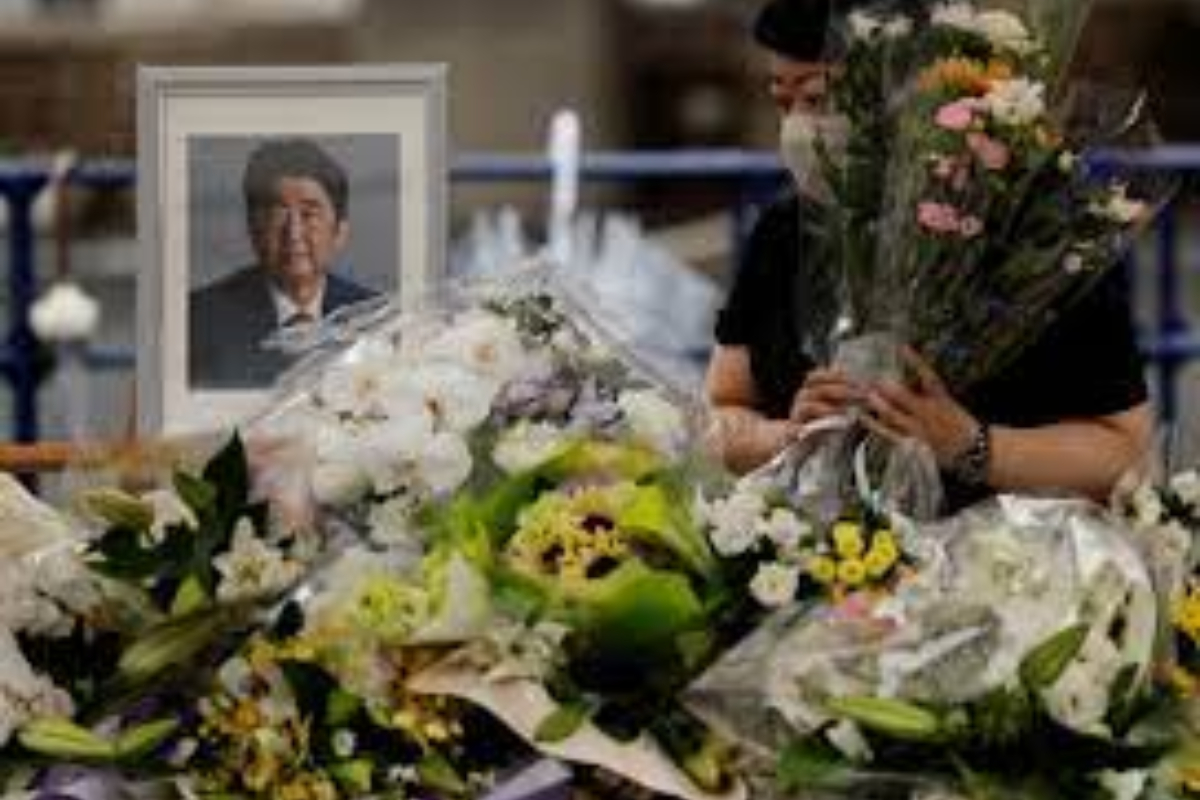- “He claims that the whole expense of the funeral will be covered by state funds, which will likely be taken from the budget reserve.
- The last state funeral for a former prime minister that was totally funded by public monies was in 1967.
- In a recent poll conducted by public broadcaster NHK, only 49% of respondents agreed with the notion of a state funeral; on Friday, the issue was trending on social media.
In response to public and online criticism that the government shouldn’t pay for ceremonies for Japan’s longest-serving but most divisive premier, the Japanese government announced on Friday that it would hold a state funeral for former Prime Minister Shinzo Abe on September 27.
Abe, who served as Japan’s prime minister for more than eight years across two terms and was incredibly influential within the ruling Liberal Democratic Party (LDP) even after leaving office, was fatally shot two weeks ago during a campaign event.
His funeral was held shortly after, but on Friday, the cabinet agreed to hold a state funeral on September 27 at the Nippon Budokan in the centre of Tokyo.
Hirokazu Matsuno, the chief cabinet secretary, said at a news conference on Friday, “We made this decision, as has been said before, due to Abe’s record as the longest-serving prime minister, during which he exerted leadership skills distinctive from others and bore heavy responsibility for dealing with a number of serious domestic and international issues.”
He claims that the whole expense of the funeral will be covered by state funds, which will likely be taken from the budget reserve.
The last state funeral for a former prime minister that was totally funded by public monies was in 1967. Subsequent funerals were partially funded by the government and partially by the LDP.
The current strategy has led to considerable unease. According to the Kyodo news agency, 200 people gathered outside the PM’s office in Tokyo to express their disapproval of the decision. On social media, complaints ranged from concerns about the use of taxpayer money to allegations that the government might be trying to capitalise politically on Abe’s passing and cement his legacy.
50 persons asked a Tokyo court for an injunction to stop the use of public funds for the event, arguing that further deliberation was needed before making the decision.
In a recent poll conducted by public broadcaster NHK, only 49% of respondents agreed with the notion of a state funeral; on Friday, the issue was trending on social media.
“(Prime Minister Fumio) Kishida constantly bragged he listens to the people, so why isn’t he doing it now?,” a person with the handle “Yuki no Imogai” posted on Twitter.
Others compared the strategy to the government’s response to the COVID-19 epidemic, which this week saw new cases in Japan reach record highs.
How did they come to this decision so rapidly, asked Twitter user ‘Heron’, given that they are doing so little to combat the pandemic?
“Use the funds you’re going to use for the burial to combat the coronavirus.”
Writing by Chang-Ran Kim and Elaine Lies; Editing by Kenneth Maxwell; Reporting by Yoshifumi Takemoto and Elaine Lies;
[embedpost slug=” analysis-after-a-decade-of-easy-credit-europes-banks-prepare-for-a-rocky-ride/“]

















